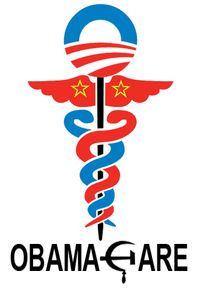Think of this as Volume 16, Number 9 of A-Clue.com, the online newsletter I've written since 1997. Enjoy.

Just as the Nixon Shock let the economy deal with the natural deflation of Moore's Law, so ObamaCare is essential to dealing with the natural inflation of health care costs.
Obamacare makes medicine part of the social contract. Rather than focusing on “cures,” it makes the market focus on “health,” which is the only way of dealing with the vast demographic changes taking place in our society.
I'm getting older. So is the whole baby boom. As we age labor shortages will increase. There will be fewer-and-fewer workers around to pay for our care, and our comforts. This would break the present health care system, leaving our economy uncompetitive, our seniors wasting away with no care, and our life expectancy headed downward. Life under the present regime is becoming nasty, brutish, and short.

First, it mandates you have health insurance, just as every driver is supposed to have car insurance. That's not a complete solution, as about 13.8% drive without coverage, illegally, which means “uninsured” coverage rates vary state-to-state.
ObamaCare will try to limit this the way smart states deal with car insurance, through databases. Using data works, as even states with high rates of uninsured drivers, like Texas, have found out. Since tracking people like cars, Massachusetts has dropped its uninsured rate to 2.6%. The result is a basic control over costs. You're not paying for your uninsured neighbor when you go into the hospital.
But the database is more important than the mandate. Because of what data can do. And the data will remain even if the mandate goes away.
The most valuable medical research of the last decade has been done by updating or following-up old studies, like the famous Framingham Heart Study. Big data can deliver big results to researchers. It lets them track the efficacy of various treatments over time, see whether things worked or didn't work.
How many years of life can you lose from smoking, on average? How about from obesity? What does diabetes really cost society? All these answers were obtained by using pools of data. The bigger the pool the more reliable the resulting analysis, and the big point of ObamaCare is to get everyone into the data pool.

The reason we pay 17% of our GDP for health care and get the results of Cuba, while our economic rivals pay just two-thirds of that while covering everyone, is because Europe has data and best practices. They can make decisions on what to cover and what not to cover, while if a treatment is shown to (maybe) work we let doctors make the decision.
It's the doctors who are the problem with the American health system, especially specialists. They lack the data to make cost-effective decisions and, even when they get it, many have direct conflicts-of-interest, and the freedom to go around common practice, regardless of cost. They then get paid for their mismanagement of the common pool of money they draw from – insurance, Medicaid, Medicare.
Getting the data, organizing it so everyone is in the pool with basic coverage, and defining that basic coverage based on the data so insurance companies are getting the most bang-for-their-buck, is the essential change. If a doctor wants to go outside what is cost-effective, they should have to explain it. Those doctors who consistently go outside what is cost-effective shouldn't be reimbursed by insurers – they should be left to the free market.

The impact of Obamacare won't be to drop our health costs to the level of Britain or even Canada. More likely those countries will face more inflation in health costs than we do, and over time there will be convergence. This will eliminate the biggest relative burden businesses face in setting up shop here, the high (and even unknown) cost of covering employee and retiree health care costs.
What if it fails? What if Obamacare completely fails to control health care costs, because the doctors refuse to go along with it, the insurers refuse to hold them to account, or opponents overturn it?
Then the only alternative will become a single-payer system, like the VA, which delivers more care to more people, more cost-effectively, than any other part of our health care system. And if we have to have the VA for everyone debate, we'll have the failure of the market system to control costs to look at, and the market process will end.
So, for insurers, it really is Obamacare or nothing.
Just as the impact of the Nixon Shock wasn't felt until the early 1980s, as inflation slackened and the effects of technology came on, so it will be with Obamacare. But only a system that assures a fair, limited draw from a limited pool can lead my generation quietly to its rest, and assure that care remains available for our children and grandchildren.










visit the next website page
Dana Blankenhorn: Why ObamaCare Works